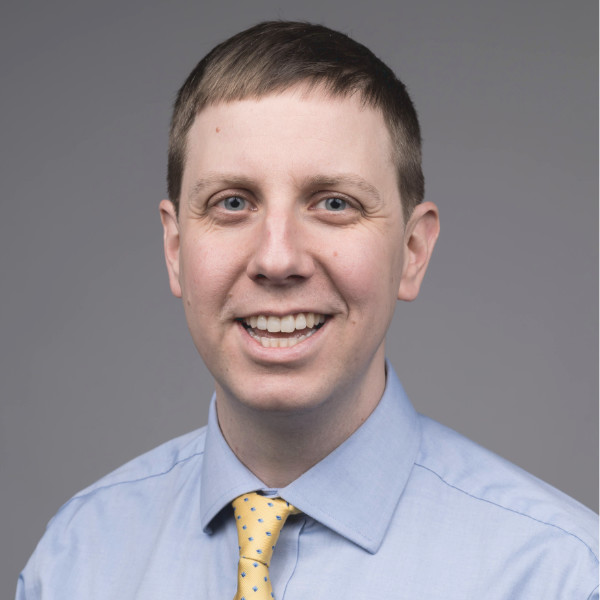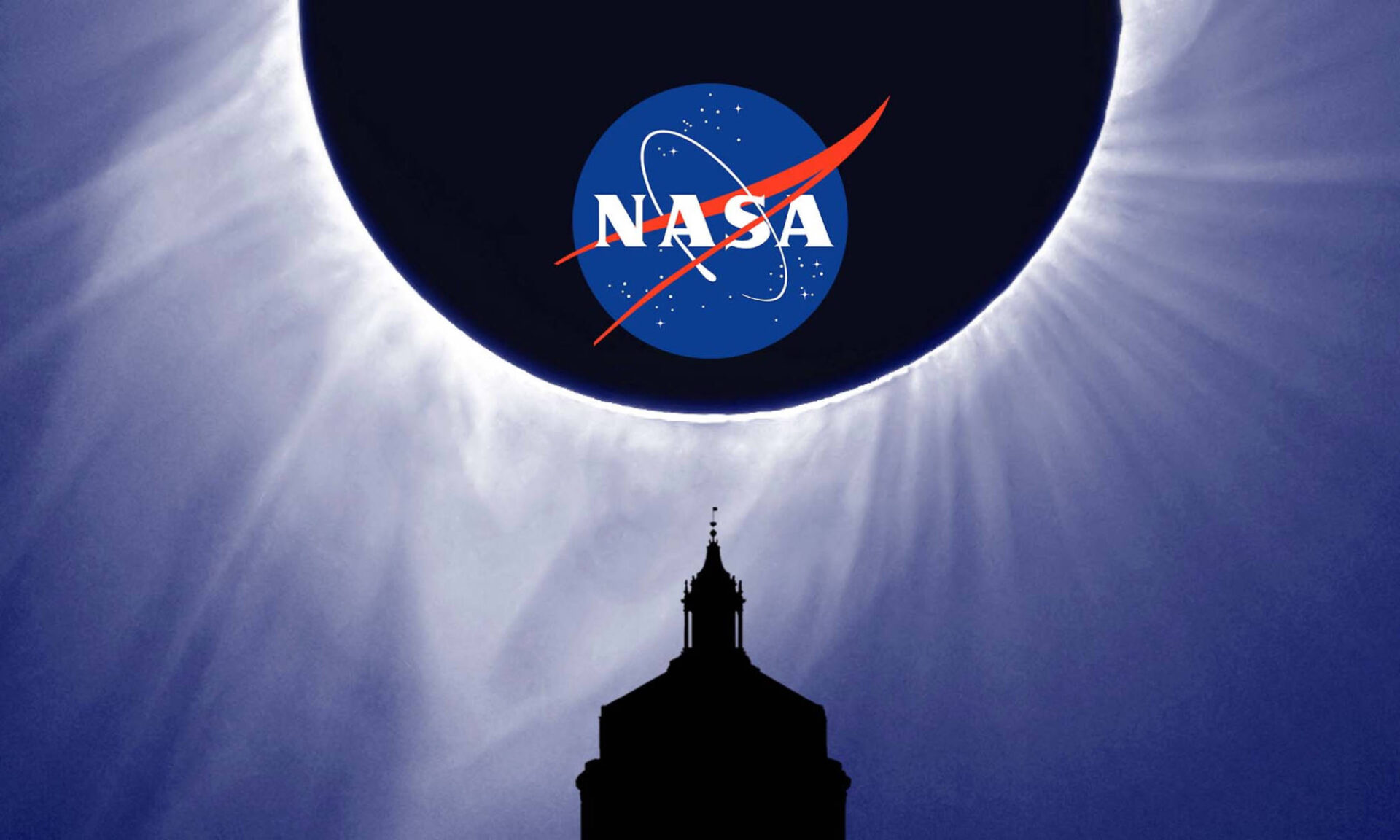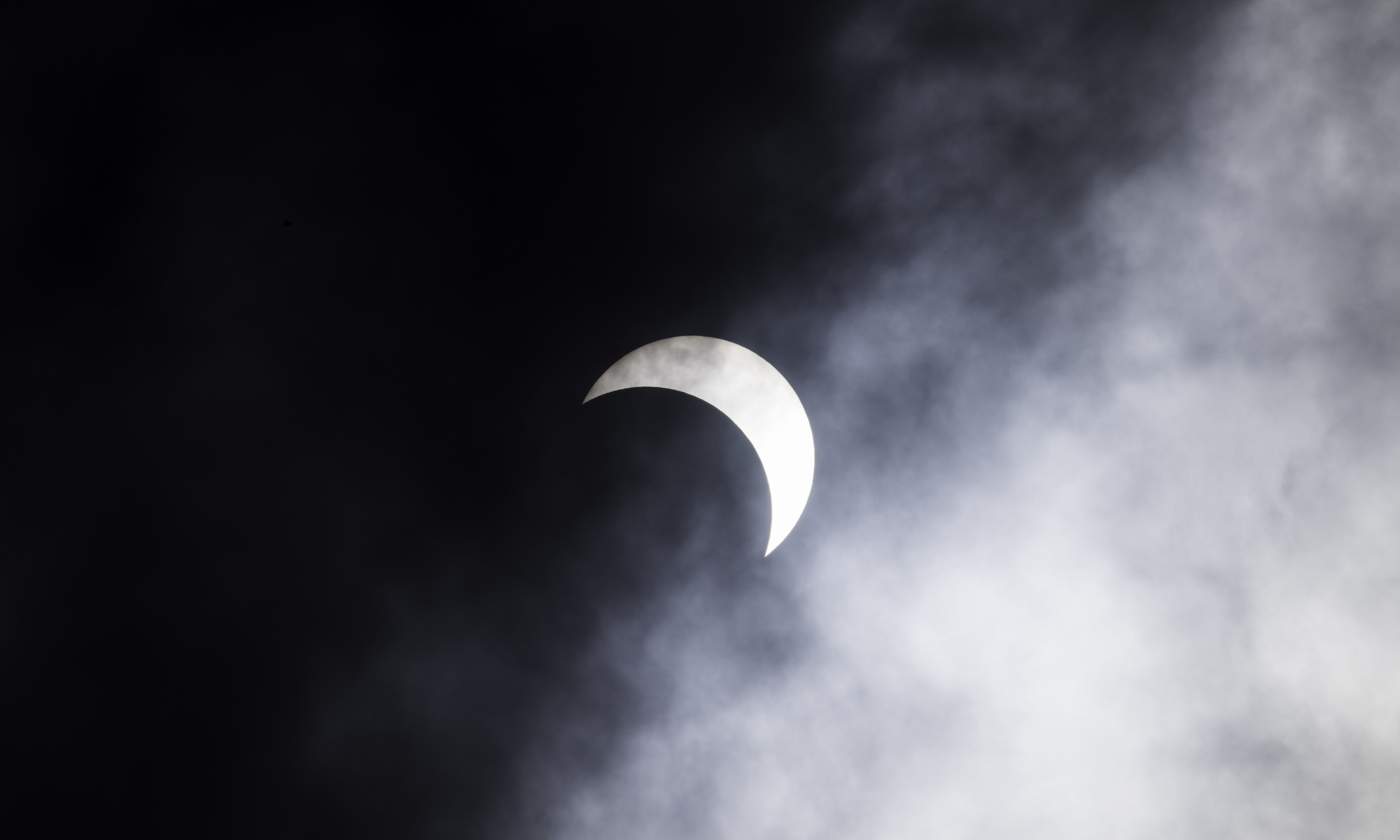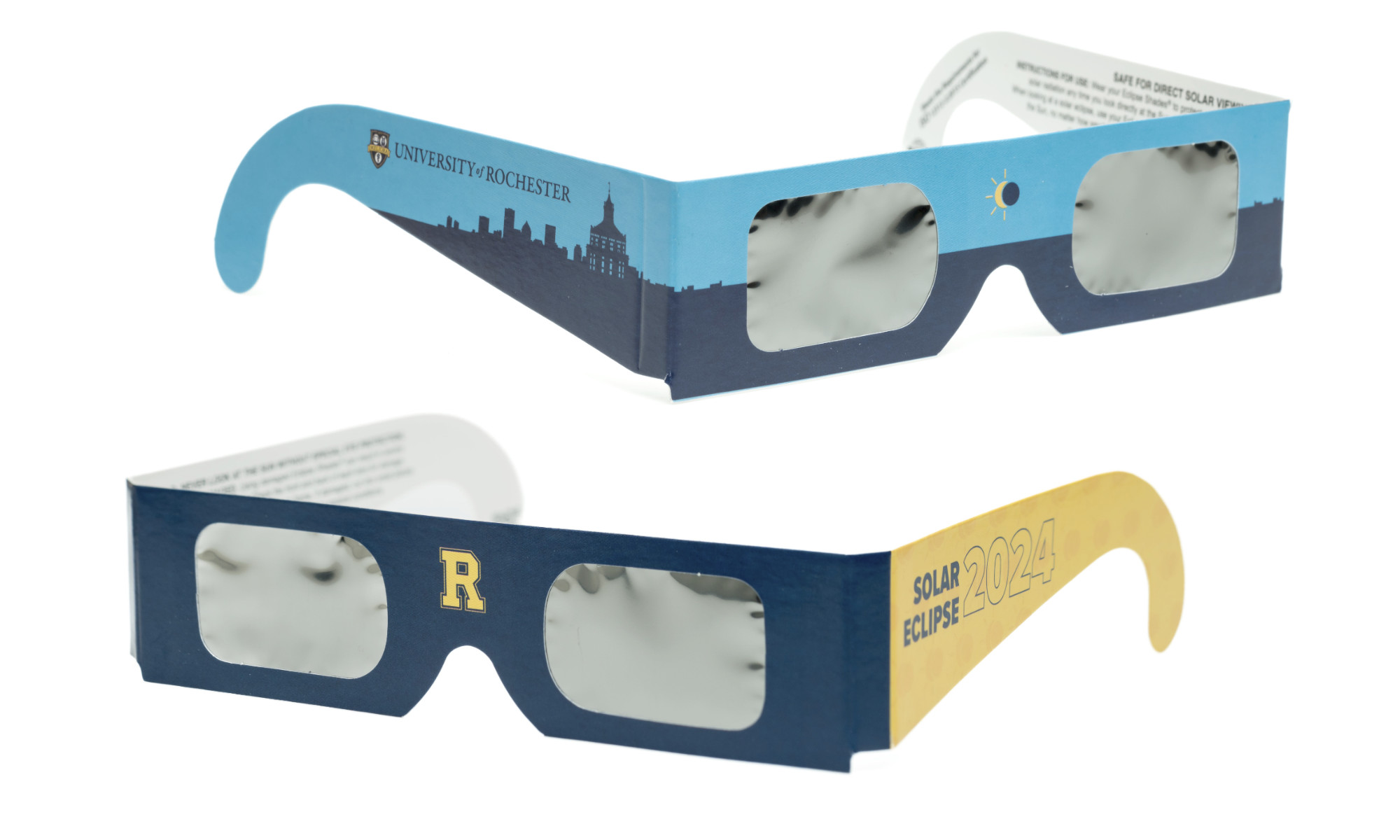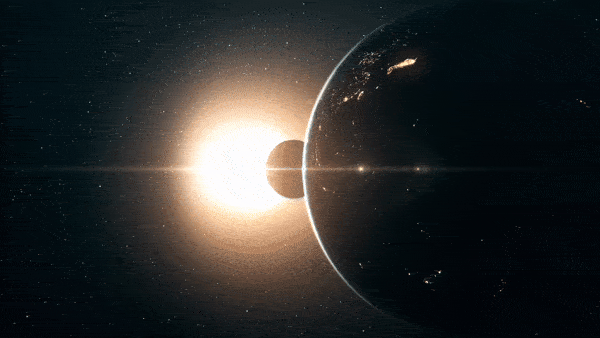Rochester has one of about 30 teams nationwide taking observations for the Citizen CATE 2024 experiment.
When a total solar eclipse passes over Rochester, New York, on April 8, three first-year University of Rochester students will help NASA study the sun’s corona. Asad Shahab ’27, an applied math major, along with computer science majors Adam Bowen ’27 and Michael Koomson ’27 formed one of more than 30 teams nationwide—from Maine to Texas—participating in the Citizen CATE 2024 experiment.
The experiment, coordinated by the Southwest Research Institute in partnership with NASA, aims to understand how the sun’s corona varies across the solar activity cycle. It will compare analyses between 2017, shortly before solar minimum, and 2024, near solar maximum. Stitching together recordings from more than 30 points along the eclipse’s path will provide scientists more than an hour of observations of the sun’s corona, which is normally difficult to study because it is millions of times dimmer than the sun’s surface.
Shahab stumbled upon the project when he saw an online ad soliciting participants. He viewed it as a chance to continue the astrophotography hobby he developed as a child.
“I had a telescope back home in Pakistan and my mother got me active with it when I was eight or nine,” says Shahab. “Astrophotography has been a hobby of mine for a long time and when I saw the Google ad looking for participants, I thought, ‘I have to do this.’”
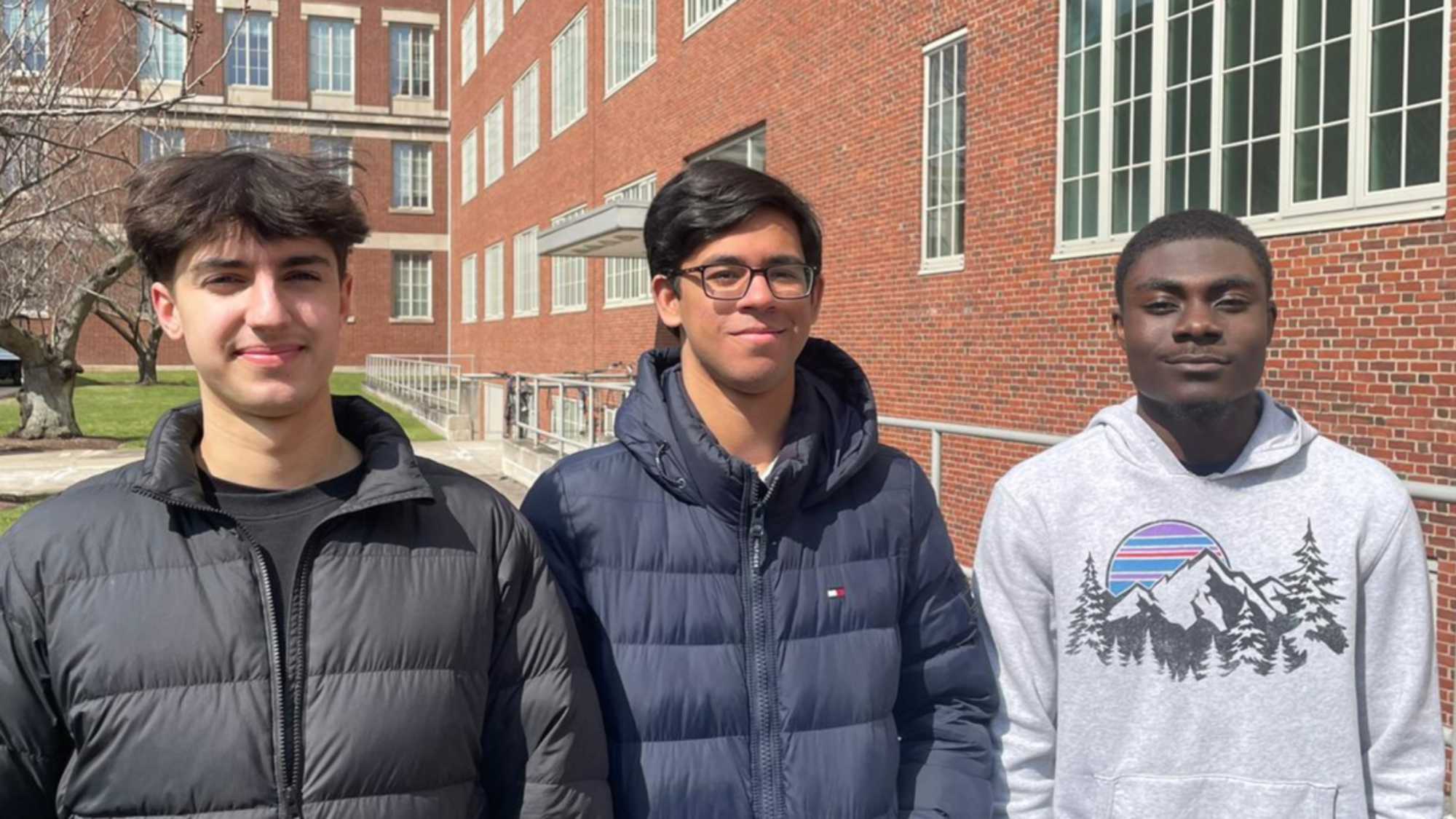
Shahab asked Bowen and Koomson, two of his friends from his dormitory floor, if they wanted to join him. The trio applied and was chosen to lead efforts for the region despite other competitive applications from the Rochester area.
NASA provided the team a telescope, mount, camera, laptop, and other equipment for taking their observations. The telescope will be outfitted with a solar filter and will track the sun throughout the entirety of the eclipse, taking images at regular intervals. When the moon is completely covering the sun, the students will remove the filter and record a video of the solar eclipse in totality.
Shahab says he’s excited to contribute to such meaningful research and is honored to represent Rochester as a member of the nationwide citizen science team.
“Who doesn’t want to participate in something sponsored by NASA? It’s a dream,” says Shahab.

